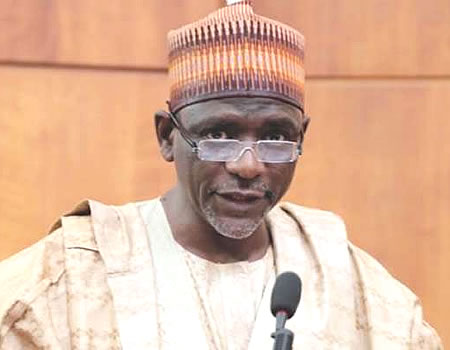
THE Federal Government has sought the collaboration of the private sector in addressing the challenge of graduate unemployability in the country.
Permanent Secretary, Federal Ministry of Education, Mr Sonny Echono, speaking in Abuja, said the ministry would actively partner with the private sector to erase the unemployability notion of Nigerian youths.
Echono, who was represented by the Director of Information and Communication Technology (ICT), Mr Ifegwu Oji, noted that skill development was multi-disciplinary, hence, it required collaborations to remedy the unemployability problems.
He, therefore, pledged the ministry’s commitment to synergise with private sector to develop the eechnical and vocational education and training policy, which Echono noted was critical in addressing the challenge of skill gap in Nigeria.
Meanwhile, the organised private sector has called on the Federal Government to immediately develop a TVET policy to address the unemployability problem facing youths in the country.
The call was made during a meeting with a delegation to the Ministry of Education, led by Mr Kehinde Awoyele, Project Co-ordinator, German Dual Vocational Training Partnership with Nigeria.
Awoyele noted that putting in place a National Skills Policy would drive vocational and technical training of the youths.
He stressed that the inadequate skills among graduates from training institutions, lack of environment to adapt to competence based training and collaborative network between private and public sector had slowed down the growth of the sector.
He disclosed that as a result of the challenges hindering the development of vocational education and training, a Permanent Working Group (PWG) was inaugurated to address TVET gaps.
He said: “The goal of the PWG is to intensify public private dialogue on vocational training through policy advocacy for private sector involvement in the legal framework of VET.
“The establishment of the Nigerian-German Dual Vocational Training Partnership Programme has benefited more than 83 Nigerian companies from three zones of Lagos, Abuja and Ogun state.
“The programme has also trained over 310 Nigerian trainers by the German experts in four professions such as industrial electronics, industrial mechanic, technical faculty management and office administration.’’
Awoyele further said that over 28 apprentices had been successfully trained and incorporated into various private organisations thereby reducing youths in the labour market.
He, therefore, called for a platform of engagement to incorporate the government, private sector and development partners, which would be responsible for jointly overseeing the efforts of Nigeria’s vocational training transformation.
Also Professor Adesoji Adesugba, Provost, Business Entrepreneurship Skills and Technical Centre (BEST), said it was critical to get the policy of TVET attended to so as to increase qualification and employability of young people.
Adesugba said the dual vocational training partnership was a test run which had yielded significant result, stressing that the Ministry of Education’s involvement would ensure success in the sector.
The group was made up of partners from the Abuja Chamber of Commerce (ACCI) and Lagos Chamber of Commerce (LCCC).
Others were Manufacturing Association of Nigeria (MAN) and Ogun Chamber of Commerce, Industry, Mines and Agriculture (OGUNCCIMA).





